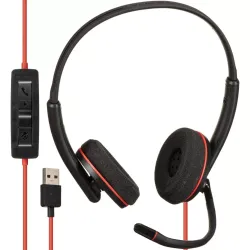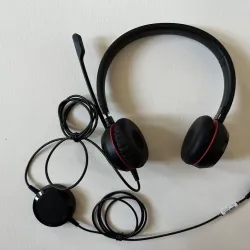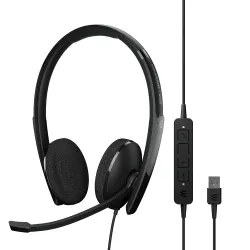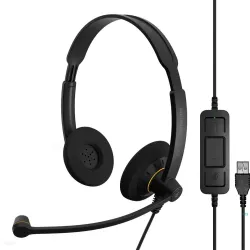Controller Units Importance and Role
What are Controller Units?
Controller units, also known as control units or controllers, are devices that are used to manage and control the behavior of machines and equipment in industrial automation systems. They serve as the brain of the system, processing and executing commands based on inputs from sensors, switches, and other devices.
There are various types of controller units, including Programmable Logic Controllers (PLCs), Process Automation Controllers (PACs), and Distributed Control Systems (DCSs). Each type of controller unit has its own set of capabilities and is optimized for different types of applications.
The Importance of Controller Units
Controller units are an integral part of modern industrial automation systems. They serve as the brain of the system, processing and executing commands that control the behavior of machines and equipment.
One of the primary benefits of controller units is their ability to automate repetitive tasks, reducing the need for human intervention and improving efficiency. For example, a controller unit can be programmed to monitor and adjust temperature, pressure, and other variables in a manufacturing process, ensuring consistent and reliable output.
Controller units also provide real-time monitoring and feedback, allowing operators to quickly detect and respond to any issues or anomalies in the system. This can help to minimize downtime and improve overall productivity.
Another important feature of controller units is their ability to store and analyze data. By collecting and analyzing data from various sensors and devices, controller units can provide valuable insights into the performance and efficiency of the system. This can help operators to identify opportunities for optimization and improvement.
Overall, controller units play a critical role in modern industrial automation systems, enabling increased efficiency, reliability, and productivity. As automation continues to evolve, the importance of controller units is only likely to grow, making them a vital component of the industrial landscape.
The Role of Controller Units?
The role of controller units is to manage and control the behavior of machines and equipment in industrial automation systems. They act as the central processing unit (CPU) of the system, processing and executing commands based on inputs from sensors, switches, and other devices.
Controller units have several important roles in automation systems. Some of these roles include:
Automation:
Controller units enable machines and equipment to be automated, reducing the need for human intervention and improving efficiency.
Monitoring and Feedback:
Controller units provide real-time monitoring and feedback, allowing operators to quickly detect and respond to any issues or anomalies in the system.
Data Collection and Analysis:
Controller units collect and analyze data from various sensors and devices in the system, providing valuable insights into the performance and efficiency of the system.
Customization and Flexibility:
Controller units are often programmed using specialized software, allowing operators to customize the behavior of the system to suit their needs.
Safety:
Controller units can be used to implement safety features, such as emergency stops and safety interlocks, to ensure that machines and equipment operate safely.
Programming Tips for Efficient Controller Unit
Here are some programming tips for efficient controller unit performance:
Optimize Your Code:
Write efficient and concise code that minimizes the use of system resources. This can help to improve the speed and reliability of your controller unit.
Use Structured Programming:
Use structured programming techniques, such as flowcharts and state diagrams, to organize your code and make it easier to understand and debug.
Implement Error Handling:
Implement error handling routines to detect and recover from errors and ensure that your controller unit continues to operate reliably.
Use Modular Programming:
Use modular programming techniques to break your code down into smaller, reusable modules that can be easily tested and debugged.
Minimize I/O Scan Time:
Minimize the amount of time your controller unit spends scanning I/O modules by using interrupt-driven I/O or event-driven programming.
Use Real-Time Operating Systems (RTOS):
Use an RTOS to provide deterministic execution of tasks and ensure that critical tasks are executed on time.
Optimize Memory Usage:
Optimize your memory usage by minimizing the use of global variables and using local variables instead.
Use Built-in Diagnostics:
Use built-in diagnostics to monitor the performance of your controller unit and detect potential issues before they become problems.
Test and Debug Your Code:
Test and debug your code thoroughly to ensure that it operates as expected and meets your performance requirements.
A controller unit manages and controls the behavior of machines and equipment in industrial automation systems. It serves as the brain of the system, processing and executing commands based on inputs from sensors, switches, and other devices. The controller unit enables automation, real-time monitoring and feedback, data collection and analysis, customization and flexibility, and safety features in industrial automation systems.
Controller units are used in industrial automation systems to manage and control the behavior of machines and equipment. They enable automation, real-time monitoring and feedback, data collection and analysis, customization and flexibility, and safety features in industrial processes, leading to increased efficiency, reliability, and productivity.
Controller units are used in a variety of industries and applications where automation is needed, such as manufacturing, automotive, aerospace, pharmaceutical, food processing, and packaging industries. They are also used in building automation systems, such as HVAC and lighting control systems. Any process that involves the control of machines, equipment, or processes can benefit from the use of controller units.
The most commonly used controller units in industrial automation systems are Programmable Logic Controllers (PLCs), Distributed Control Systems (DCSs), Microcontrollers, Industrial PCs, Human-Machine Interfaces (HMIs), and Programmable Automation Controllers (PACs). The choice of controller unit depends on the specific requirements of the automation system, such as the complexity of control tasks, the number of devices to be controlled, and the level of customization needed.
There are no products to list in this category.




